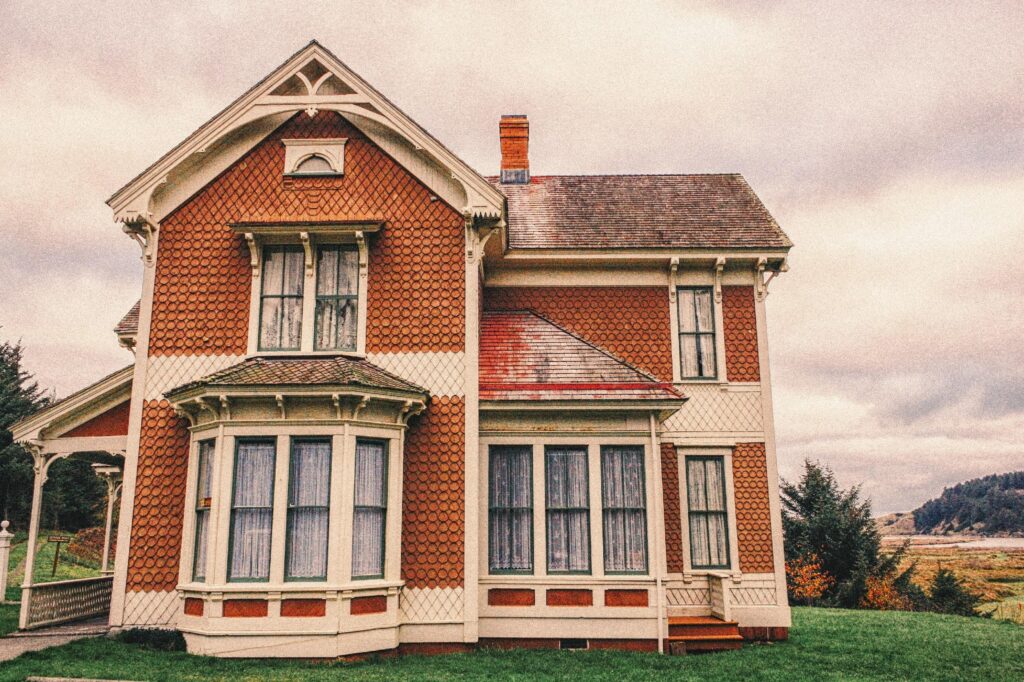Owning a historic home gives you the chance to own a piece of history. A piece of history with its own characters, quirks, charm, and beauty. Your home could be considered historic due to its architecture, past owners, or historical events taking place on the property.
If you are reading this article, there is a high chance you have your eye on a historic home in West Virginia. But you should understand that while historic homes can be beautiful, charming, and have historic significance, they also come with a few downsides. These usually include expensive maintenance, restrictions, and never-ending care.
While you’ll be able to embrace and enjoy the history of your new home, there will be a lot of challenges you’ll have to face that you wouldn’t have to with a newer home or property. So, before you go ahead and purchase a historic home, you should be aware of the potential drawbacks as well as the benefits that come with this unique choice. Additionally, you should also be aware of why it’s always important to get a home appraisal!
Before we get into the challenges and benefits of owning a a piece of history, let’s take a look at what factors are considered when it comes to declaring a home as historic.

What Makes a Home ‘Historic’?
Historical homes in Maryland are designated and registered as ‘historic’ officially by the National Park Service, state and local municipalities. In order to be considered historical, a few factors are taken into consideration. Although there can be a few exceptions, the home should at least be over 50 years old. The home should have connections to either a historic event, a historical figure, or be constructed by a historic architect or in a historical style. A home can also be considered historic if the home has or is likely to provide information/evidence of historical importance.
Now that we know what factors make a home ‘historic,’ let’s get into the benefits and drawbacks of owning a home like this.
The Benefits
- Incentives: Federal, state, or local governments may provide tax incentives, low-interest loans, and grants to aid in the preservation, maintenance, and also purchase of these properties.
- Return on investment: This is the most prominent benefit of owning historic property. Historic homes in good locations and when well-maintained appreciate in value at a much higher rate than other homes in the market.
- You’ll own and live in a piece of history: Historic homes provide owners the opportunity to live in places of historical significance. The architecture is different and unique, the inside has its own charm and characteristics, and owners get a chance to preserve and keep this piece of history alive.
The Challenges
- Maintenance: Historic homes require a lot of upkeep and maintenance. They have water damage, electrical issues, structural problems, and just regular wear and tear all over. And maintaining and fixing these issues isn’t always as easy in old homes as it is in newer homes. The plans are different; they aren’t built up to modern regulations, and could require a number of renovations.
- Rules and regulations: Officially designated historic homes come with lots of rules and regulations. Owning a historic home means preserving the historical significance of the said property. Any renovations an owner might consider, inside or out, first need to get approved by the state or local authorities. These rules and regulations vary a lot, depending on your state or local municipality.
- Insurance expense: buying a historic home could mean your insurance rates go through the roof. Conventional home insurance companies usually don’t insure historic properties, which pushes owners to purchase historic property insurance, which is always more expensive due to structural issues.

Why You Should Get a Historic Home Appraisal
If you believe you are ready to jump in and purchase your historic home, you should always consider getting a home appraisal to ensure you make a good return on your investment.
First, you should do your due diligence and ensure the property you’re looking into is officially registered as a historic home. You should also understand why the property is considered to have historical importance or significance – this isn’t just for the valuation but to make sure you preserve this significance to the best of your ability. Then you’ll also want to ensure the property or home is up to code – if not, that’s another huge expense that can be estimated by an appraiser or a contractor.
Historic home appraisals are different from regular home appraisals. Regular home appraisals take into account recent sales of similar properties in similar markets, similar square footage homes, and market trends. But for historic homes, usually, there is no data on recent sales or market trends, and square footage doesn’t matter as much as historical significance. Some historic properties also have unique or special features and distinctions that make appraisals quite difficult and complicated. For a historic home appraisal, the appraiser takes into account a lot more than they would for a newer property. They require extensive documentation and research and have to identify and record previous modifications, renovations, and changes. They also have to analyze and document the ‘extra’ land that comes with the home for any historical interest.
Get an Expert Historic Home Appraisal
Getting an expert involved is your best bet in knowing and understanding the true value of your historic home. An expert will be able to consider, evaluate, analyze, and understand the construction, the historical significance, the renovations, and other financial implications that come with historic homes. Without an expert historic home appraisal, you might overpay for a not-so-historic home or not be able to land a loan for an actual historic home. Most of the value of a historic home relates to its age, its construction style, and what era it was built in, and an appraiser can build a report on how you could improve the value or worth of your historic home!



